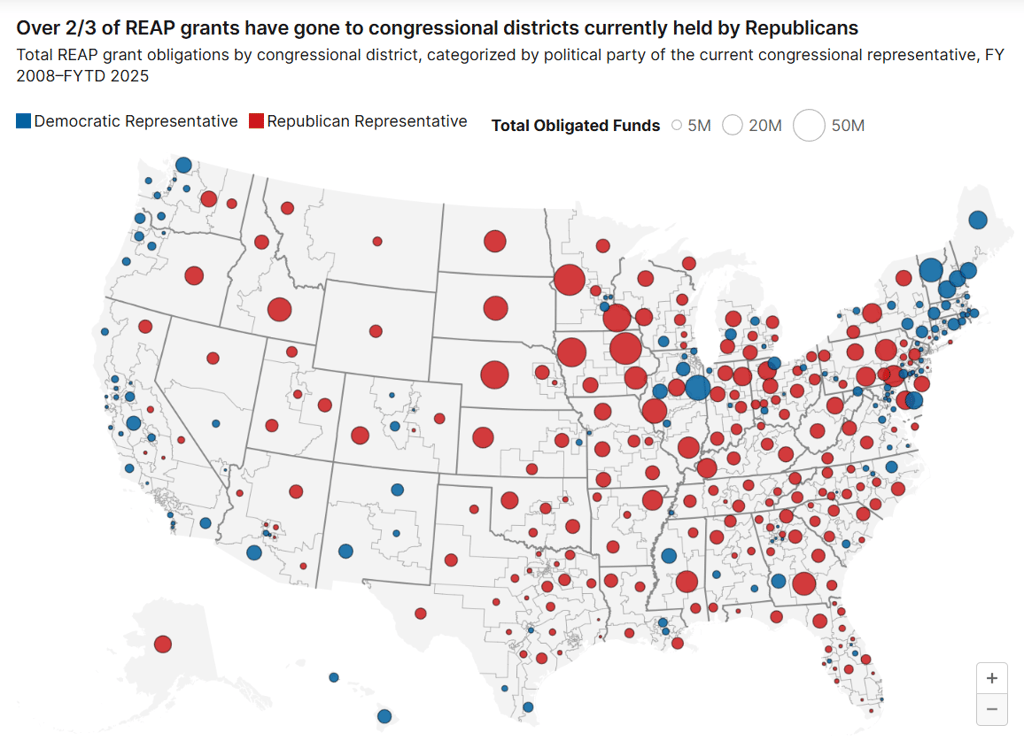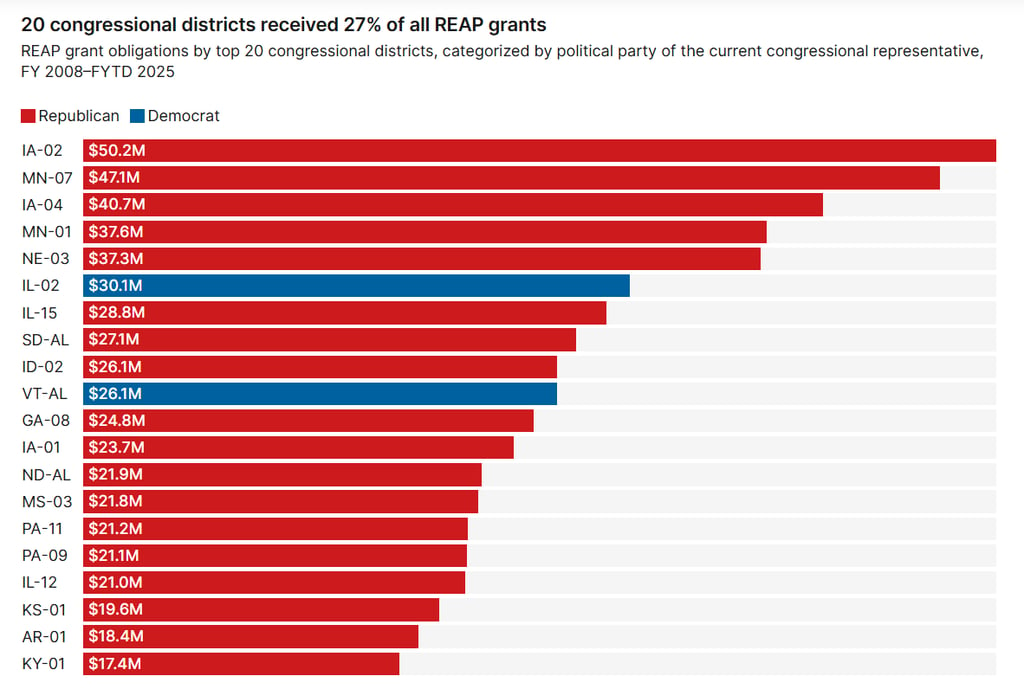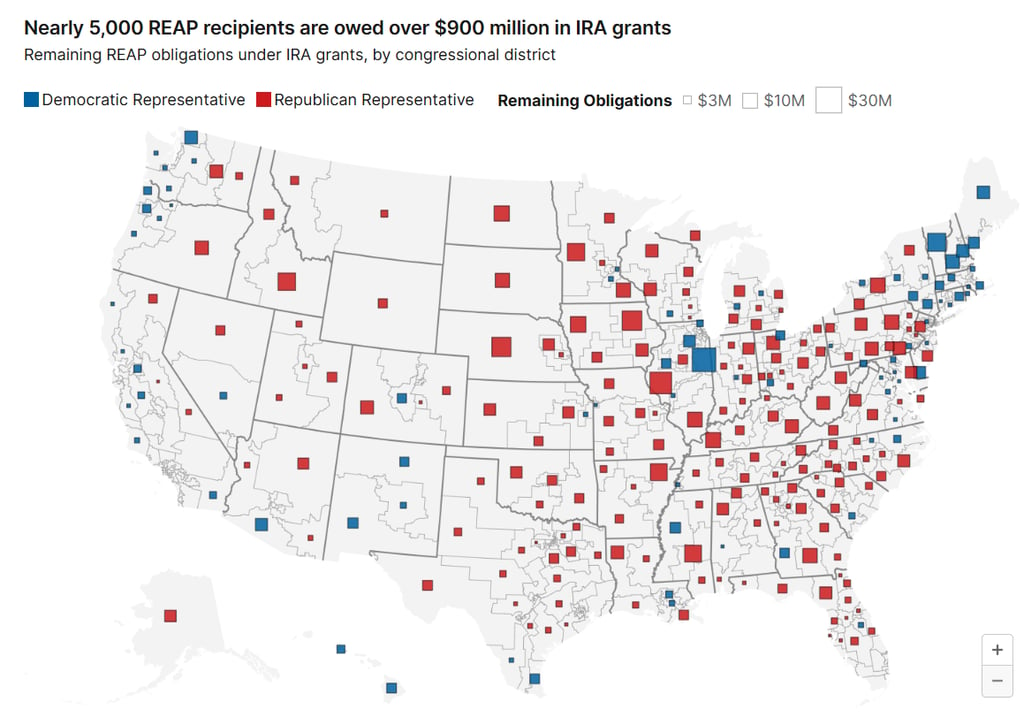The Practical Power of Rural Energy: Why REAP and Energy Tax Credits Matter
There’s a real possibility that renewable energy tax credits could be phased out after 2025. For rural businesses, especially in Republican districts, these credits are often the difference between moving forward with a project -- like equipment updates -- or putting it on hold.
5/23/20253 min read


At Zero Emissions Northwest (ZEN), we see firsthand how rural businesses and farms stretch every dollar and make smart investments that pay off for their communities. One of the most effective tools we’ve seen is the Rural Energy for America Program (REAP), a federal initiative that’s been quietly transforming rural America for nearly two decades.
A Program That Works
REAP isn’t just another government program—it’s a lifeline for small businesses and agricultural producers who want to lower their energy costs and invest in their future. Over two-thirds of its grants have gone to Republican-led districts, reaching small businesses and farms in every corner of the U.S.
Since 2008, REAP has helped fund over 25,000 projects in every state, from solar panels on barns to energy-efficient upgrades in warehouses. Most of these grants are modest—often between $10,000 and $50,000—which means they’re accessible to the family farms and small businesses that are the backbone of our country.
No Political Divide Here
What’s remarkable is how REAP’s impact cuts across political lines. The majority of REAP grants have gone to districts represented by Republicans. This is a program that works because it’s flexible, practical, and designed with rural communities and common sense in mind.




Real Results, Real Stories
We’ve seen the difference REAP makes. The majority of REAP’s grants are under $50,000, making them accessible and impactful for small operations. All of these projects take advantage of tax credits where available.
Eight farmers in Lincoln County, WA installed $700,000 worth of solar, supported exclusively by REAP grants. These projects will save $1.8M over their useful life -- making these farms more profitable and economically resilient.
One of ZEN's largest grants was for White Pass Ski Resort in Naches, WA. This $500,000 grant will support a hydro-turbine in existing snowmaking pipes. The grant provides $2.4M in savings with year-round renewable energy.
Big isn't always better. Half of ZEN's awardees won grants for $20,000 and less. These $600,000 in grants will result in $5.4M in energy savings for everyday rural small businesses -- restaurants, coffee shops, agricultural producers, and manufacturers.
These aren’t isolated cases. Across the country, rural farmers and business owners are using REAP and clean energy tax credits to cut costs, stay competitive, and reinvest in their communities.
Why Energy Tax Credits Matter
There’s a real possibility that renewable energy tax credits could be phased out after 2025. For rural businesses, these credits are often the difference between moving forward with a project -- like equipment updates -- or putting it on hold. These tax credits drive investment, lower energy costs, and help keep rural economies strong.
A Call to Action
REAP’s story is proof that well-designed federal programs can deliver real value to rural communities. As $911 million in REAP funds—covering more than 4,800 rural projects—remains temporarily stalled, it’s crucial to advocate for the continuation of both REAP and federal energy tax credits. These programs power local businesses, cut costs, and strengthen towns and communities like ours. Losing or significantly altering them would do too much damage and harm rural development and energy security.


Speak Up
If you care about affordable, reliable energy and the future of rural America, now is the time to speak up. Contact your representatives and urge them to maintain these vital incentives. Rural communities are leading the way on clean energy and innovation—let’s make sure they have the support they need to keep going.
Sources:
Brookings: The Rural Energy for America Program primarily benefits Republican congressional districts
Resource Rural: The practical and popular story of rural energy improvements
